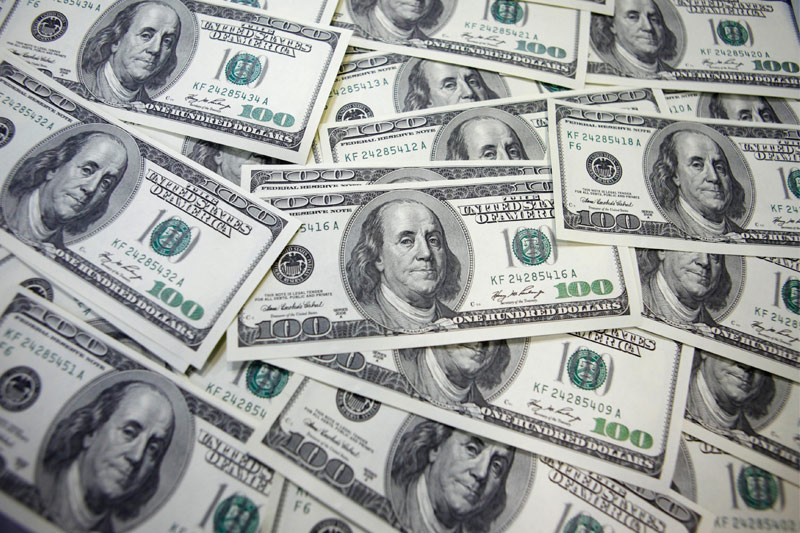Investing.com - The dollar pushed broadly lower against a basket of other major currencies on Friday, as risk sentiment improved amid fresh hopes for progress on the Greek debt front, while the Federal Reserve's latest policy statement continued to weigh on the greenback.
The dollar remained fragile after the Fed indicated on Wednesday that U.S. economic growth has moderated and that interest rates will rise at a slower pace than previously forecast.
The Fed dropped a reference to being "patient" on the timing of rate hikes, but added that the change in its forward guidance did not mean it has decided on the timing for an initial rate increase.
The U.S. dollar index, which measures the greenback’s strength against a trade-weighted basket of six major currencies, was down 0.91% to 98.54.
The euro extended earlier gains, with EUR/USD up 1.06% to 1.0771.
The single currency found support after the European Commission said it made $2 billion of unused funds available to Greece to help the country avert a cash crunch.
The announcement came after Greek authorities said they were moving towards meeting the requirements of international creditors on a more detailed reform plan in order to secure the additional bailout funds required to prevent the country's bankruptcy.
European Union officials were set to continue discussions on the Greek bailout throughout the day.
The pound also gained ground, with GBP/USD advancing 0.83% to 1.4876.
The U.K. Office for National Statistics earlier reported that public sector net borrowing rose by £6.22 billion in February, less than the expected increase of £7.70 billion. January's figure was revised to a £8.93 billion drop from a previously estimated decline of £9.41 billion.
Elsewhere, the dollar turned lower against the yen and the Swiss franc, with USD/JPY easing 0.09% to 120.70 and with USD/CHF tumbling 1.24% to 0.9778.
The minutes of the Bank of Japan's most recent policy meeting earlier showed that government dropped their calls to hit the bank's inflation target "at the earliest date possible," signaling to the BoJ that it shouldn't rush in accelerating inflation through expanding stimulus measures further.
Meanwhile, the Australian, New Zealand and Canadian dollars pushed broadly higher, with AUD/USD climbing 1.12% to 0.7736 and NZD/USD rallying 1.34% to 0.7514, while USD/CAD dropped 0.86% to 1.2607.
Statistics Canada said on Friday that retail sales dropped 1.7% in January, compared to expectations for a 0.7% fall, while core retail sales, which exclude automobiles, declined 1.8% in January, exceeding the expected 0.4% slip.
In a separate report, Statistics Canada said that consumer prices rose 0.9% last month, more than the expected 0.7% increase, while core consumer prices, which exclude the eight most volatile items, advanced 0.6% in February, compared to expectations for a 0.5% rise.
